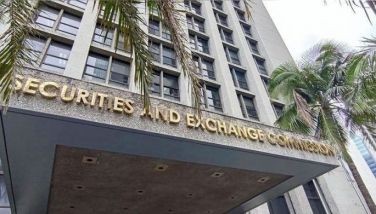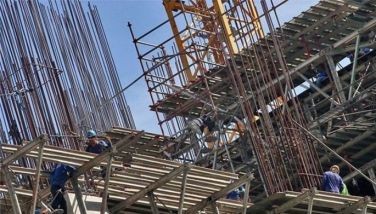Non-tariff barriers clip Asean integration – PIDS
MANILA, Philippines - While significant progress has been made in opening up the ASEAN markets by easing tariffs, the excessive use of non-tariff measures (NTMs) remain as barriers to intra-regional trade, according to a paper by the Philippine Institute of Development Studies (PIDS).
Duties on several goods changing hands within Southeast Asia are now at near zero level, the result of mutual commitment among ASEAN member states to reduce tariff barriers to trade in line with the achievement of the ASEAN Economic Community (AEC).
Despite this, non-tariff measures in trade are proving to be “the more difficult trade obstacle to overcome,” PIDS said.
NTMs are policy measures other than ordinary customs tariffs the imposition of which can be justified for a variety of reasons such as health, security, environment and consumer protection.
In the paper, PIDS research fellows Erlinda Medalla and Melalyn Mantaring said excessive use of NTMs can adversely affect global and regional production chains by unnecessarily increasing the cost of doing business.
“There are increasing and legitimate concerns that some NTMs are used mainly for protectionist reasons. In such cases, NTMs become simply non-tariff barriers to trade and investments,” they said in the paper titled Review of Intra-ASEAN Non-Tariff Measures.
To reinforce this point, a survey among the business community in six ASEAN states was built into the study to determine the impact of NTMs on intra-regional trade. Covered by the survey were multinational firms, industry associations and federations of exporting industries and services in Indonesia, Singapore, Thailand, Philippines, Malaysia and Vietnam.
Respondents said NTMs create additional costs to exporters which vary across ASEAN countries. Added costs to doing business were considered minimal for Singapore, moderate for the Philippines and perceived very high for Myanmar.
In terms of clarity of rules, NTMs in Singapore and Thailand are considered transparent, those of the Philippines and Malaysia in mid-range, while non-tariff regulations in Cambodia, Laos and Myanmar are considered most unclear.
Respondents said NTMs become obstacles to trade because of the overly strict and complex requirements and administrative hurdles.
In the Philippines, among the most common NTMs are sanitary and phytosanitary measures.
Medalla and Mantaring said NTMs must be reduced in line with the lowering of customs duties to maximize the benefits of a free trade environment. Should specific NTMs be imposed, procedures must be streamlined.
“The challenge for ASEAN countries, including the Philippines, is how to incorporate efficiency and facilitative measures in the implementation and administration of NTMs,” said the authors.
The study also urged the promotion of transparency through the creation of an update database of NTMs in the region to complement regular notifications to the ASEAN Secretariat and the World Trade Organization.
- Latest
- Trending






























